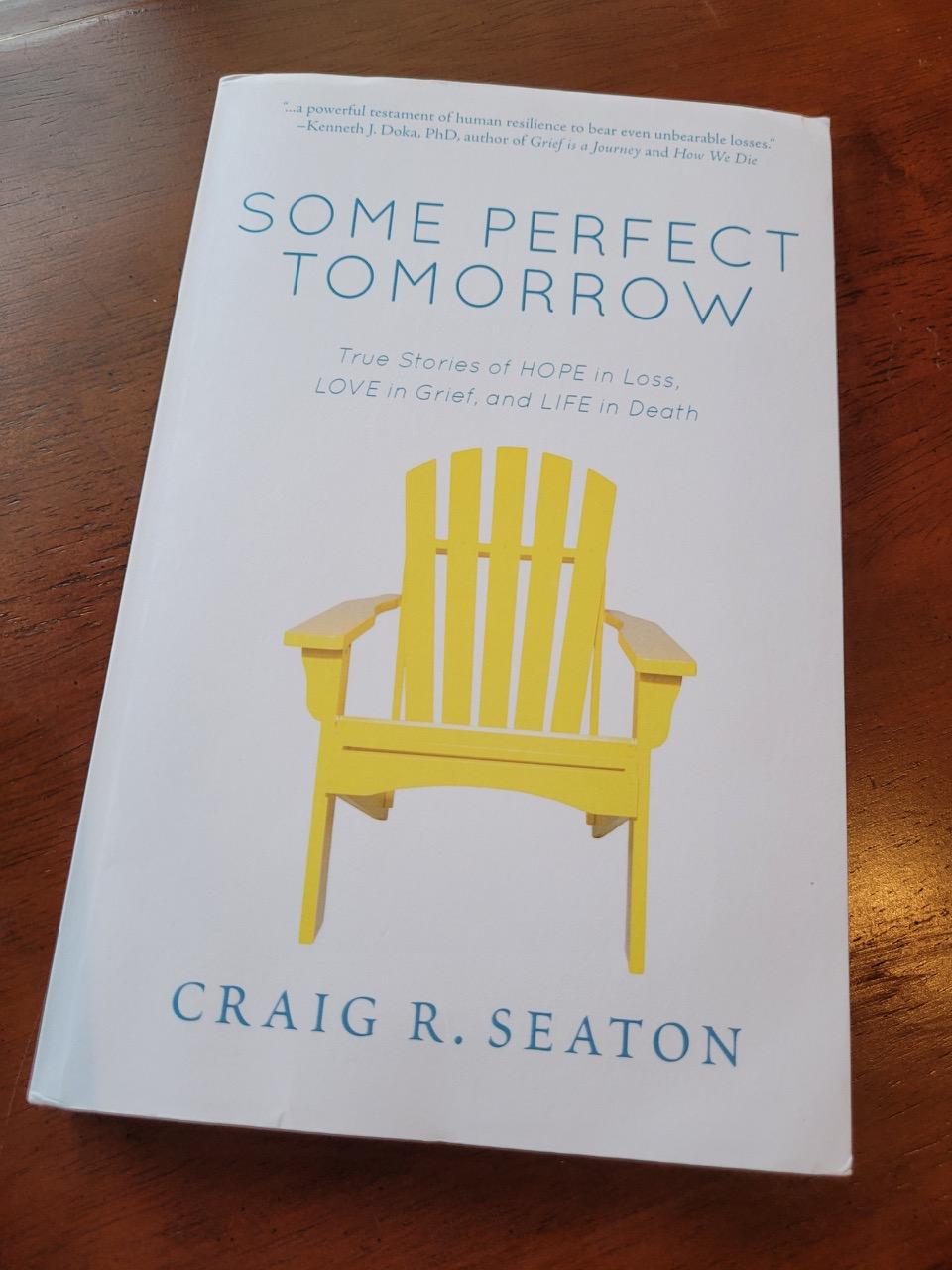
That Bright Yellow Adirondack Chair
| published May 8, 2024 |
Book review by R. Alan Clanton, Thursday Review editor
It comes knocking for all of us, and it is the inevitable rite-of-passage, so to speak, for all humans since there has been humankind: the passing from life to death.
Indeed, when we lose someone to death—spouse, parent, friend, relative, even a child—we face a new reality. That new reality can be filled with mourning, shrouded in grief, clouded with guilt and doubts and second thoughts. But it can be navigated, and it can be endured. It can also be meaningful in ways that may surprise us.
Craig Seaton’s book, Some Perfect Tomorrow, offers readers exactly what its subtitle suggests: true stories of hope in loss, love in grief, and life in death. Seaton’s numerous stories—each its own chapter—draw directly from his decades of experiences as a caregiver, mentor, and advisor to hundreds of families and individuals. In this highly readable and approachable book, Seaton shares these anecdotes in a hands-on talkative style that draws out the joyfulness and celebratory side of passing, and shows us how mourning can be turned to morning, darkness eventually to light.
We all process death differently, and there are neither set rules, nor any standard playbook for how we move on. As I wrote in my Foreword to Seaton’s book, death affects us in ways we cannot predict or foresee, and though it is tempting to see the process as linear—as if the straight highway of time alone will do the healing—in reality how we cope with death is much more akin to a tapestry, sometimes as complex as the people who left us, and infusing us with competing emotions and many pages to turn. Which brings me back to Craig Seaton’s book and its page-turning appeal: no two of his chapters are alike, and no two his stories repeat, making the experience of reading this book all the more vivid for its diversity and its aliveness.
Some Perfect Tomorrow also shows how courage and hope—two core puzzle pieces within our humanity—can be so valuable for our resilience during those journeys after someone has died. A key feature of Seaton’s book is that each chapter concludes with brief talking points called Sparks of Life, sensitively-crafted ideas wrought away from the abstract and channeled clearly into the actionable. These talking points provide clarity without preachiness, they provide comfort without cliché—a sturdy accomplishment for individual stories about death and grief.
There is also an irresistible and relentless thread of joy and compassion in Seaton’s stories: even the most tragic and troubling chapters leave us willing to smile and find hope though Seaton’s irrepressible good humor and care. And almost any reader will find it refreshing that he deftly avoids the usual burial day platitudes while also skillfully dodging the numbing psycho-babble prattle found in most self-help publications. In some ways, Seaton’s book easily sidesteps the shelving niche we would think of as self-help, a goal he surely intended.
Beside his decades as a grief specialist, Seaton—a freelance writer who our readers may know from his articles and reflections here at Thursday Review—also writes and performs music (check out his website, craigseaton.com).
The book’s simple, elegant cover invites comfort and tranquility: a brightly painted Adirondack chair in warm lemon yellow, a symbol of hope and a beacon for inner peace. That chair also hints at what is found in this readable book: stories up-close-and-personal about death, and practical and useful thoughts about how we navigate the long river that is the rest of our own life.
Related Thursday Review articles:
I'd Love to Change the World; Craig R. Seaton; Thursday Review; July 27, 2018.
Wish I Had You Back Today; Craig R. Seaton; Thursday Review; October 1, 2017.
